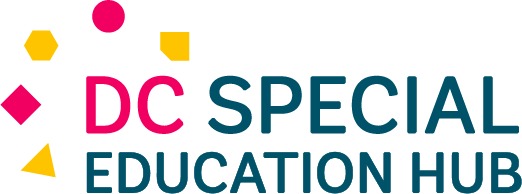 While some disabilities don’t become apparent until children reach school age, signs of other disabilities can emerge as early as birth. Early intervention is a powerful tool in supporting children with disabilities and their families.
While some disabilities don’t become apparent until children reach school age, signs of other disabilities can emerge as early as birth. Early intervention is a powerful tool in supporting children with disabilities and their families.
My Child Isn’t in School Yet, but I Think They Might Have a Disability. What Do I Do?
If you know or suspect your child may have a disability, there are many ways to get support in DC.
| Age Range | Referrals are Made Through... |
|---|---|
| Birth to 2.10 years | Strong Start View the Strong Start Referral form |
| 2.8 years to 5.10 years | Early Stages View the Early Stages Referral form |
| 5.10 years and older | See our information on eligibility for further guidance |
How Do I Know if My Child Should be Evaluated for a Disability?
While there is no universal answer to this question, the way your child learns, acts, plays, speaks, and moves can provide insight into their developmental progress. You can view typical developmental milestones below:
- Early Stages Milestones (ages 2 months to 5 years)
- CDC Developmental Milestones Resources
If you have further questions, you can always contact your child’s primary care provider or Strong Start or Early Stages (depending on your child’s age).
What Early Childhood Services are Available for My Child’s Disability?
Through Strong Start or Early Stages, your child is entitled to a free developmental screening and other evaluations deemed necessary. Afterwards, they may recommend specialized instruction, psychological services, behavioral support services, speech/language therapy, occupational therapy, or physical therapy.
Based on these recommendations, you and the evaluation staff will decide what services your child may need and how they will receive needed services. For children ages 0-3, an IFSP (Individualized Family Support Plan) will be developed to support you and your child in receiving these services. For children ages 3-5, the team will decide whether an IFSP or an IEP (Individualized Education Program) is more appropriate.
How is an IFSP Different From an IEP?
While both documents are developed by a team to support children with disabilities, there are several key differences.
| Category | IFSP (Individualized Family Support Plan) | IEP (Individualized Education Program) |
|---|---|---|
| Child's Age | 0-3 years (can be used for 3-5 year old if team agrees) | 3-22 years |
| Review Frequency | Reviewed 6 months after development | Reviewed annually |
| Focus | Focuses on child and family within daily routines and activities. IFSPs require identification of family needs as well as child needs. | Focuses primarily on the child during their school day. |
| Transitions | Includes transition planning for preschool (or other appropriate services) at least 10 months before the child turns 3. | Includes transition planning for life post-high school from the time a child turns 14. |
| Service Setting | Services may occur within the home, community settings, or other natural environments. | Services primarily occur at school. |
Additional Resources:
